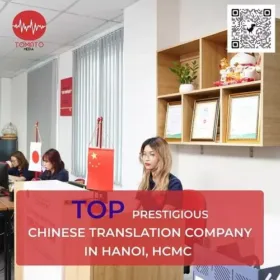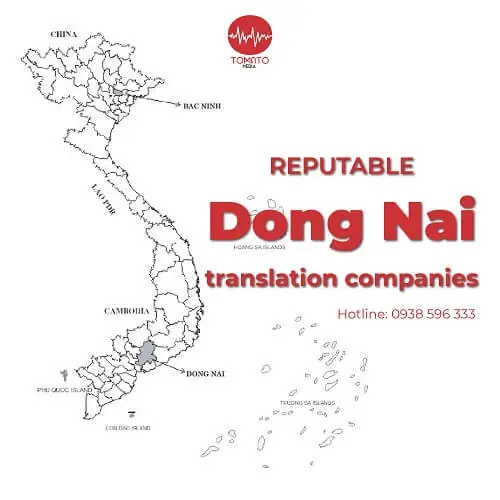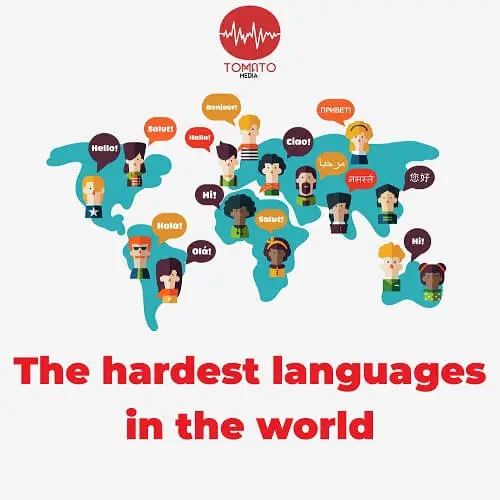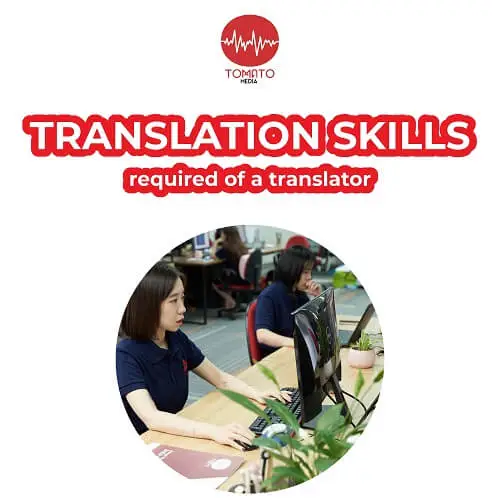The demand for Chinese translation is becoming more popular than ever. Therefore, there are so many Chinese translation centers that customers can hardly choose the prestigious unit. If you are looking for a professional and quality Chinese translation company, follow this article. According to what criteria do you evaluate a quality Chinese translation company? It’s [...]
8 most effective Chinese interpretation skills
The demand for Chinese interpretation services is rising in tandem with the number of interpreters working in this language. However, in order to successfully implement large and small translation projects, interpreters need to have basic Chinese interpretation skills.
Tomato Media is also a professional, high-quality Chinese translation company. If you need Chinese translation services, contact Tomato immediately:
NỘI DUNG (CONTENT)
Chinese interpretation skills – strong grasp of vocabulary

If you want to interpret Chinese well, the prerequisite is a rich vocabulary to easily understand and interpret correctly. Chinese has a very diverse vocabulary and is divided into content words and function words. Content words consist of 10 types: nouns, verbs, adjectives, distinguishing words, quantifiers, numbers, adverbs, pronouns, onomatopoeia, and exclamations. Function words consist of four types: prepositions, conjunctions, auxiliary words, and modal particles.
An interpreter’s grasp of vocabulary can be expressed through the general tables of glossary and terminology they have. The interpreter will build a language notebook for himself/herself.
Chinese interpretation skills – Grammar proficiency

Grammar is one of the important factors when translating in general and interpreting Chinese in particular. Proficiency in grammar helps interpreters translate correctly with a clear, coherent sentence structure, from which the listener can easily grasp information.
Although there are many similarities in the grammatical structure with Vietnamese, there still exist specific characteristics that require the interpreter to master, such as: word order, function words, monophonic and polyphonic verbs, the quantifiers, or the location of nouns that are always placed after the sentence, or the word order according to the large-to-small sequence. A good grammatical interpreter will be able to grasp and anticipate the intent of the speaker to translate quickly, especially in cases of fast-paced events such as cabin interpretation sessions.
Chinese interpretation skills – Confident communication

Good communication is a mandatory requirement for a Chinese interpreter. Translators not only need to understand the content but also need to know how to transmit it to be accurate and easy to understand. In particular, in seminars and conferences with large amounts of information, the poor expression will take time and make listeners not grasp the whole information.
Communication skills not only help the interpretation process but are also necessary when interpreters negotiate and discuss work with customers.
Chinese interpretation skills – Fluency in Vietnamese
In addition to learning and mastering good Chinese interpretation skills, fluency in Vietnamese is also an indispensable factor if you want to become a good interpreter. Interpreters need to have a rich vocabulary and knowledge of the local culture in Vietnam. In addition, for specialized interpretation, interpreters should learn and read Vietnamese documents in that field to grasp professional terminology and expressions.
Chinese interpretation skills – Social knowledge updates

The interpretation work may require translations in a variety of fields. With rich social knowledge, the interpreter will have a rich vocabulary and knowledge of many aspects to easily grasp and even predict the speaker. From there, the interpretation process will be more smooth and the job opportunities for the interpreter will be greater. Constantly updating social news through newspapers, books, and news is essential for every translator.
Chinese translation skills – understanding cultures

The interpreting profession acts as a bridge. What you translate helps the two sides understand each other and connect by bridging the gap in language and culture.
To do their job well, interpreters need to understand the culture of different countries in order to choose the words that express the meaning and intentions in each sentence and context in order to avoid cultural disagreements in the process of interpreting.
Chinese interpretation skills – Emotion management

When working in sensitive environments such as legal or medical, interpreters will face many situations such as emergencies, deaths, and criminal trials. When translating, interpreters are not allowed to add opinions, criticism, and personal thoughts, which affect the accuracy of the translation.
In addition, a good interpreter knows how to use emotions through voice, expressions, and gestures to convey the right and sufficient intentions of the speaker in a professional and interesting way.
Chinese interpretation skills – Work arrangement and management

Interpreters need to have skills in planning and scheduling projects so as not to get overloaded as well as easily follow the projects. In addition, if working in a team, make sure to properly assign roles among members and conduct monitoring of the progress and performance of each person. In addition, professional interpreters need to monitor the project and conduct analysis after each project to learn from experience and apply it to the new work.
Some useful Chinese interpretation experience
In order to interpret Chinese well, in addition to honing the above skills, interpreters need to seize the opportunity to accumulate translation experience for themselves. Here are some tips to help those who work in the interpreting profession accumulate a lot of practical experience.
| 1| |
Do not ignore the opportunity to practice interpretation skills |
Nothing can help interpreters gain valuable experience like working on a variety of actual projects. Interpreters should register for direct interpretation or online interpretation or participate in big and small events and conferences to reach customers in various fields. These are occasions to help interpreters practice skills such as interpreting, listening, speaking, communication, handling situations, etc.
| 2| |
Exchange information with customers |
When translating, the interpreter is responsible for what he or she conveys. As a result, do not pass up the opportunity to ask customers questions, especially when working on projects requiring a high level of practical knowledge, such as medicine or engineering. Interpreters should preview documents, read, listen, and exchange content with customers before conducting the interpretation to ensure quality and good preparation in both mentality and knowledge.
| 3| |
Language practice and the accumulation of practical experience and cultural knowledge |
The translation industry not only requires language proficiency but also requires translators with a deep understanding of many fields, professions, flexibility, and acumen. Therefore, interpreters do not ignore opportunities to learn through news, books, discussions with customers, or in interpretation sessions. These are all precious opportunities for each individual to enrich their social knowledge.
Interpreters need to be equipped with various Chinese interpretation skills to be able to do this job well. Hopefully, our article will be useful to those who are working in the interpretation industry as well as those wishing to seek interpreters.
If you need translation assistance from a team of professional, experienced interpreters who fully meet the above skills, Tomato Media is always here to support you. Contact us for the quickest advice.
Frequently asked questions about Chinese translation skills
Which Chinese translation skills are the most important?
If we need to choose the most important Chinese translation skill, we will choose the following:
- A thorough grasp of the vocabulary
- Grammatical proficiency
- Confident communication skills
- Cultural understanding
These can be considered as four skills for a basic interpretation session, but obviously not for important events with partners or customers.
To say which skills are most significant for important events and meetings, the answer would be all 8 skills listed above.
In the event that an interpreter fails to manage his or her emotions and express personal views in an internal meeting between an American boss and a Vietnamese manager, the manager’s message to the boss can turn into the interpreter’s message to the boss. That’s really not good. Fluency in Vietnamese, the ability to organize work projects, and the capacity to stay current on social knowledge are all requirements for a serious occasion or meeting with a specific objective.
In addition to good Chinese interpretation skills, what moral qualities does an interpreter need?
In addition to good Chinese interpretation skills, interpreters need to have the following moral qualities:
- Honesty
- Conscientiousness
- Patience
- A sense of responsibility at work
- Willing to study and observe
- Have an eye for detail
- Be self-disciplined
- Adaptability
- Professional pride
| Ready to get started? |
Have a large project? |
| GET A QUOTE | ✉ CONTACT US |

















